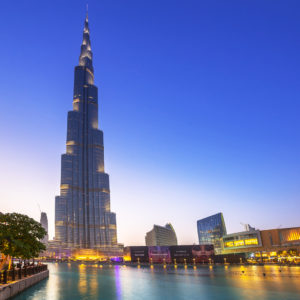Just as Saudi Arabia wants the world to ignore the premeditated murder of a Washington Post columnist, other countries in that region want the world to disregard the absence of due process in their legal systems. Marsha Lazareva languishes in an overcrowded Kuwaiti jail, sentenced to 10 years hard labor based on false charges and a trial in which she was not allowed to present a defense.
Intervention by the Trump administration could rectify this gross injustice. In the meantime, Marsha’s tale is a warning to U.S. investors to stay out of the Gulf States, especially Kuwait.A Wharton School graduate and mother of a 5-year-old son, who is a U.S. citizen, Marsha was a prominent business woman in Kuwait until the government decided it wanted to seize the $496 million she had generated for investors.
A Kuwaiti judge convicted Marsha in May 2018 after receiving testimony from a single witness, Hamed Al-Allayan, a Kuwaiti government auditor. Al-Allayan testified that Marsha had signed and submitted invoices to the Kuwait Port Authority to receive millions in payments for work not performed. Marsha’s defense was that the documents had been forged. But she was not permitted to present any witness or documents for her defense and was even prevented from attending some of the hearings during her trial.
The government refused to provide the original documents to substantiate the testimony of the sole witness against her, a fatal decision for a defendant wanting to show the documents were phony.It therefore came as no surprise when, just last month, Al-Allayan was indicted for forging the very invoices he had presented to the court to establish Marsha’s guilt, thereby supporting her claim of innocence.
And yet Marsha remains imprisoned, apparently because of the half a billion dollars in her company’s bank account that Kuwait wants to confiscate.
As a business woman, Marsha managed a private equity fund, which includes international investors, including Americans and Brits as stakeholders. In November 2017, after successfully completing a project in the Philippines, the company Marsha started, The Port Fund, transferred to its account in a Dubai state-owned bank $496 million to be distributed to creditors and investors.
Kuwait requested the funds be frozen and Dubai complied. After Marsha’s conviction by a kangaroo court, Kuwait requested $72 million of the funds to satisfy the fine assessed as part of her sentence. Dubai refused, stating there was no relationship between the funds in her frozen account and the allegations related to Marsha’s conviction.Kuwait had a Plan B.
Having frozen the half billion dollars so Marsha could not repay her creditors and investors, Kuwait charged Marsha with not repaying the Kuwait investors. The second Kafkaesque trial is in process.
Despite numerous complaints and appeals to the Kuwaiti government by prominent Americans and British officials, the Kuwait Attorney General still refuses to write a request to the Dubai Attorney General that satisfies Dubai legal requirements for releasing frozen funds.
The good news is, President Trump has the power to right this wrong. He has proven willing to use that power to hold foreign governments and individuals accountable. The Global Magnitsky Act, which empowers the Executive Branch to sanction bad actors who are involved in human rights abuse and corruption, factors at issue where Kuwaiti officials have taken Martha’s liberty and are trying to expropriate $496 million in proceedings devoid of due process under any standard of justice.
Marsha’s U.S. defense team is providing the U.S. government with a list of Kuwaitis and others who participated in this scheme, so that any Magnitsky review process can include tracking their foreign bank accounts, the source of the funds in those accounts, and any assets they own in the United States.
Investors and international business leaders are waiting to see if President Trump will use his considerable authority to hold Kuwait accountable. Until that happens, those considering investing money abroad should look anywhere but Kuwait.

